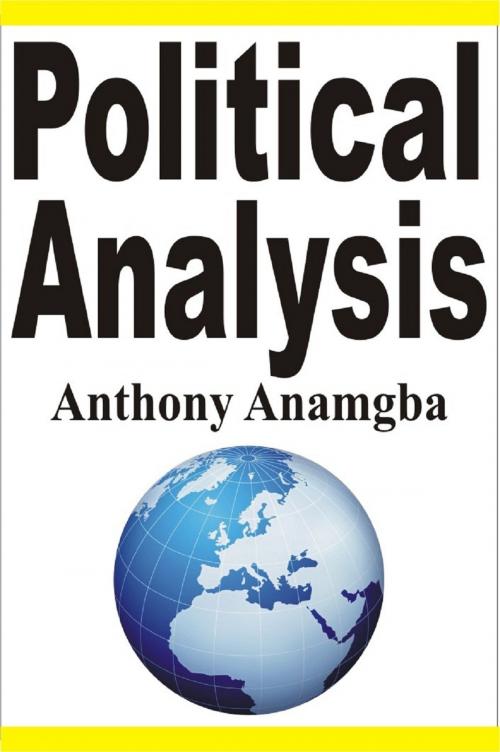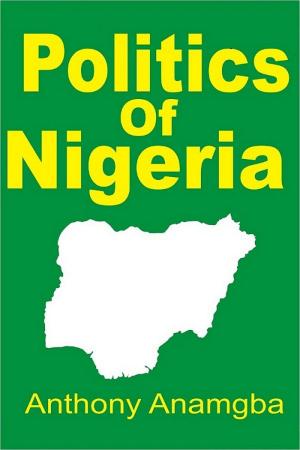| Author: | Anthony Anamgba | ISBN: | 9781370221035 |
| Publisher: | Anthony Anamgba | Publication: | March 10, 2017 |
| Imprint: | Smashwords Edition | Language: | English |
| Author: | Anthony Anamgba |
| ISBN: | 9781370221035 |
| Publisher: | Anthony Anamgba |
| Publication: | March 10, 2017 |
| Imprint: | Smashwords Edition |
| Language: | English |
Political analysis is the process of breaking down a complex political phenomenon in order to study its parts and their relations. This book clearly explains how to analyze politics. It explores the traditional approach to political analysis like the philosophical, historical, legal and institutional approaches. It analyzes the behavioural approach to political analysis and identifies the distinctive models of political analysis. The systems model has been found useful for analyzing the national and international political systems. The structural-functional model has been extremely useful for analyzing comparative government and politics. The communication model brings to one’s notice that government is a decision-making system based on information flows. The elite model enables one to understand the basic pattern of power and wealth. The group model underpins power, interests and conflicts in any systematic study of Politics. The power model enables one to know that an analysis of power is intrinsically fundamental to all political analysis. The class model addresses the revolutionary and transforming dimensions of social change. The centre-periphery model points out the likely reasons why the developing States remain undeveloped in spite of the spirited efforts they have made. And the game model pinpoints the rational decision-making strategies in conflict situations.
Political analysis is the process of breaking down a complex political phenomenon in order to study its parts and their relations. This book clearly explains how to analyze politics. It explores the traditional approach to political analysis like the philosophical, historical, legal and institutional approaches. It analyzes the behavioural approach to political analysis and identifies the distinctive models of political analysis. The systems model has been found useful for analyzing the national and international political systems. The structural-functional model has been extremely useful for analyzing comparative government and politics. The communication model brings to one’s notice that government is a decision-making system based on information flows. The elite model enables one to understand the basic pattern of power and wealth. The group model underpins power, interests and conflicts in any systematic study of Politics. The power model enables one to know that an analysis of power is intrinsically fundamental to all political analysis. The class model addresses the revolutionary and transforming dimensions of social change. The centre-periphery model points out the likely reasons why the developing States remain undeveloped in spite of the spirited efforts they have made. And the game model pinpoints the rational decision-making strategies in conflict situations.















